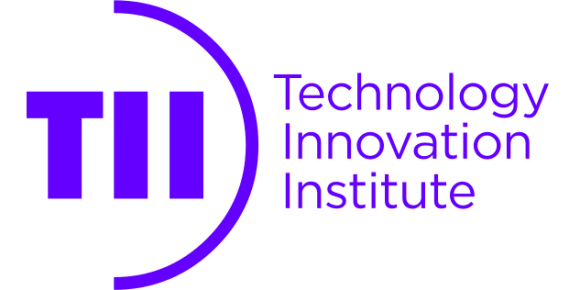Tuesday 5 September 2023, 11:00 – 12:30
Petar Popovski, Aalborg University
Talk title: Timing and Reliability Towards 6G Wireless Systems
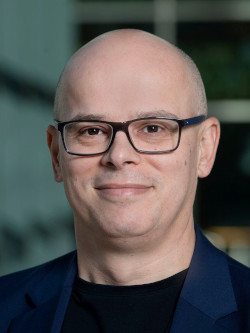
Abstract: High reliability and low latency were tightly coupled in 5G through the generic service of ultra-reliable low-latency communications (URLLC). As we move through research and towards specification of 6G, it emerges that the low latency should be generalized to a set of more general timing requirements, while the reliability guarantees need to be based on a proper statistical characterization and statistical learning. This talk will present the general concept of timing in wireless communication systems and networks and its relation to effective information generation, processing, transmission, and reconstruction at the senders and receivers. Starting from the focus on latency, a specific instance of timing being in the focus of 5G, we will present a statistical framework of timing requirements in wireless systems. The timing framework subsumes both latency and Age of Information (AoI) and it is applicable to various communication models, classical and quantum, as well as various applications, such as consensus or distributed learning/inference. The second part of the talk will discuss the statistical aspects of the reliability guarantees in URLLC. The focus is on the physical layer since it is fundamental to the understanding of the overall performance. We introduce the notion of statistical radio maps that can be used to offer reliability guarantees and show how can they enable the BS to obtain high-quality predictions of the reliability performance.
Bio: Petar Popovski is a Professor at Aalborg University, where he heads the section on Connectivity and a Visiting Excellence Chair at the University of Bremen. He received his Dipl.-Ing and M. Sc. degrees in communication engineering from the University of Sts. Cyril and Methodius in Skopje and the Ph.D. degree from Aalborg University in 2005. He is a Fellow of the IEEE. He received an ERC Consolidator Grant (2015), the Danish Elite Researcher award (2016), IEEE Fred W. Ellersick prize (2016), IEEE Stephen O. Rice prize (2018), Technical Achievement Award from the IEEE Technical Committee on Smart Grid Communications (2019), the Danish Telecommunication Prize (2020) and Villum Investigator Grant (2021). He is currently the Editor-in-Chief of IEEEE JOURNAL ON SELECTED AREAS IN COMMUNICATIONS. Prof. Popovski was the General Chair for IEEE SmartGridComm 2018 and IEEE Communication Theory Workshop 2019. He authored the book “Wireless Connectivity: An Intuitive and Fundamental Guide'', published by Wiley in 2020. His research interests are in communication theory and wireless connectivity.
Jean-Claude Belfiore, Algorithmic Sciences Lab Huawei
Talk title: AI for Future Wireless Networks Requires to Understand What It Is Doing
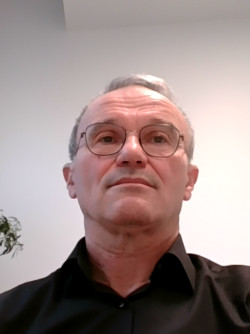 Abstract: Compared to humans and animals, “intelligent” machines are very slow to learn, require a large amount of data, do not understand what they are doing, make stupid mistakes, do not reason, have no common sense. Moreover, how can we standardize techniques that give no guarantee that cannot even be represented in a compact way? Energy consumption is also a main issue. All these drawbacks are critical for 6G. Is there a way to overcome them? All these issues are related to the absence of semantics in nowadays machine learning. Is it possible, for a new architecture of machines to learn as quickly as a baby? With very few data? To “understand”? To reason? We aim at giving some answers to these questions by developing a theoretical point of view and applying it to experiments to show the effectiveness of our theory. This theory is based on a mathematical notion proposed by Alexander Grothendieck in the 1960’s, the notion of topos. We will present how this notion helped us to develop a new theory of semantic information, how a generalized notion of equivariance just corresponds, in the right topos, to regular functions, how it is possible to learn by concepts and approach the way a baby can learn and finally, how toposes are related to logics. All these aspects will be presented both theoretically and experimentally.
Abstract: Compared to humans and animals, “intelligent” machines are very slow to learn, require a large amount of data, do not understand what they are doing, make stupid mistakes, do not reason, have no common sense. Moreover, how can we standardize techniques that give no guarantee that cannot even be represented in a compact way? Energy consumption is also a main issue. All these drawbacks are critical for 6G. Is there a way to overcome them? All these issues are related to the absence of semantics in nowadays machine learning. Is it possible, for a new architecture of machines to learn as quickly as a baby? With very few data? To “understand”? To reason? We aim at giving some answers to these questions by developing a theoretical point of view and applying it to experiments to show the effectiveness of our theory. This theory is based on a mathematical notion proposed by Alexander Grothendieck in the 1960’s, the notion of topos. We will present how this notion helped us to develop a new theory of semantic information, how a generalized notion of equivariance just corresponds, in the right topos, to regular functions, how it is possible to learn by concepts and approach the way a baby can learn and finally, how toposes are related to logics. All these aspects will be presented both theoretically and experimentally.
Bio: Jean-Claude Belfiore graduated from Supelec and received his Ph.D. from Telecom Paris and the Habilitation from Université Pierre et Marie Curie (UPMC). Until 2015, he was with Telecom Paris as a Full Professor in the Communications & Electronics Department. In 2015, he joined the Mathematical and Algorithmic Sciences Lab of Huawei as Head of the Communications Science Department, and since July 2021 he is the Director of Wireless Technology Lab, Paris. Jean-Claude Belfiore has made pioneering contributions to modulation and coding for wireless systems (especially space-time coding) by using tools of number theory. He is one of the co-inventors of the celebrated Golden Code of the Wi-Max standard. Jean-Claude Belfiore is author or co-author of more than 200 journal and conference papers and has served as a supervisor for more than 30 Ph.D. students. He was Associate Editor of the IEEE Transactions on Information Theory for Coding Theory, and he was the recipient of the 2007 Blondel Medal. At Huawei, he has been involved in 5G standardization, and more specifically in Channel Coding (Polar Codes for 5G). He is now working on the future 6G, focusing on semantic information and communication and future wireless networks for intelligent machines.
Wednesday 6 September 2023, 11:00 – 12:30
Carlos Faouzi Bader, Technology Innovation Institute
Talk title: Large Language Models: The Next Frontier for the 6G Communication Era?
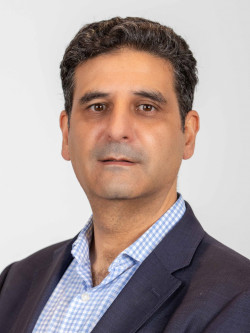
Abstract: While recent wireless networks have witnessed several revolutions in terms of technological trends, it is apparent that future wireless generations are converging towards solidifying the principle of self-built, self-evolving networks, particularly with the maturing of the self-organizing networks (SON) paradigm and the amazing advancements in artificial intelligence (AI) technologies. The core principle of SON is based on the concept of enabling wireless networks to have the capability to adjust, reconfigure, and optimize their functions and parameters according to network conditions and user demands. However, even though SON is aimed for realizing automation in wireless networks, its performance is dependent on predefined network conditions and their corresponding configurations.
Generative AI (GenAI) can be a key player in realizing the vision of self-evolving networks. Within this context, Large Language Models (LLMs), a subfield of natural language processing and GenAI, have recently attracted considerable attention from the research community as a revolutionary technology in the field of AI. We believe that GenAI models can introduce a radical change in wireless network design and operation.
We anticipate that LLMs will introduce a tangible enhancement in the performance of different schemes within the Telecom domain. This can be achieved through exploiting the generative capabilities of LLMs in addition to the multimodality nature of the data acquired in wireless networks, including radio frequency (RF) signals, and 2D and 3D visual representations of wireless environments, to attain improved contextual, situational, and temporal awareness, and therefore, enhanced wireless communication.
To demonstrate the promising potential of wireless multi-agent GenAI networks, the talk highlights the benefits that can be achieved when implementing wireless generative agents in intent based networking. Finally, the talk will shed light on potential challenges and outline a research roadmap towards realizing the vision of wireless collective intelligence.
Bio: C. Faouzi Bader received his Ph.D. degree (with Honors) in Telecommunications in 2001 from Universidad Politécnica de Madrid (UPM), Madrid, Spain. He joined the Centre Technologic de Telecomunicacions de Catalunya (CTTC) in Barcelona, Spain, as a Research Associate in 2002, where he was a Senior Research Associate from 2006 to 2013. From June to end of December 2013, he was an Associate Professor at CentraleSupélec (France). Since 2017, he is an Honorary Adjunct Professor at the University of Technology Sydney (Australia), and during 2018-2019 he was Head of the Signals & Communications Department at the Institute of Electronics and Digital Technologies (IETR) in Rennes, France. From 2020 to end of 2021, he took the position of the Director of Research at the Institut Supérieur d’Electronique de Paris (ISEP), France. Since the end of December 2021, he is now Director Telecom at the IA & Digital Science Research Center (AIDRC) at the Telecommunications Centre of the Technology Innovation Institute (TII) in Abu Dhabi, UAE.
His research mainly focuses on Beyond 5G and 6G intelligent communication environment, ew spectrum bandwidth communications, next generation mobility systems, and advanced waveforms for communication and sensing. He has been involved in several European projects in the 5th - 7th EC research frameworks (8 EU funded projects and 10 national projects), and from 2012 to 2013 he was the coordinator and manager of the EC funded ICT "EMPhAtiC" project focusing on "Enhanced Multicarrier Techniques for Professional Ad-Hoc and Cell-Based Communications". From 2007 to 2021. Dr. F. Bader was the main coordinator of the BRAVE ANR French project at CentraleSupélec (France), where the main goal was the achievement of efficient waveforms for THz/Terabits wireless communication devices. He has published over 48 journal papers and 140 papers in peer-reviewed international conferences, more than 13 book chapters, and 4 edited books. He served as Technical Program Committee member in major IEEE ComSoc and VTS conferences (ICC, PIMRC, VTC spring/fall, WCNC, ISWCS, GLOBECOM, ICT). He is an IEEE Senior Member since 2007.
Mohamed-Slim Alouini, KAUST
Talk title: Towards Extreme Band Communications to Super-Connect the Connected and to Connect the Unconnected
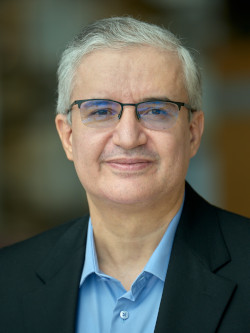
Abstract: A rapid increase in the use of wireless services over the last few decades has led to the problem of radio-frequency (RF) spectrum exhaustion. More specifically, due to this RF spectrum scarcity, additional RF bandwidth allocation, as utilized in the recent past over "traditional bands", is not anymore enough to fulfill the demand for more wireless applications and higher data rates. The talk goes first over the potential offered by extreme band communication (XB-Com) systems to relieve spectrum scarcity. Indeed, mm-wave, THz, and free space optics broadband wireless systems recently attracted several research interests worldwide due to the progress in electronics and photonics technologies. By utilizing these extreme frequency bands and employing extremely large bandwidths, the 6G target data rates over 100 Gbps could be achieved. The talk then summarizes (i) some of the challenges that need to be surpassed before such kinds of systems can be deployed and (ii) some of on-going activities in this area in order to achieve this goal.
Bio: Mohamed-Slim Alouini was born in Tunis, Tunisia. He received the Ph.D. degree in Electrical Engineering from the California Institute of Technology (Caltech) in 1998. He served as a faculty member at the University of Minnesota then in the Texas A&M University at Qatar before joining in 2009 the King Abdullah University of Science and Technology (KAUST) where he is now the Al-Khawarizmi Distinguished Professor of Electrical and Computer Engineering. Prof. Alouini is a Fellow of the IEEE and OPTICA (Formerly the Optical Society of America (OSA)). He is currently particularly interested in addressing the technical challenges associated with the uneven distribution, access to, and use of information and communication technologies in rural, low-income, disaster, and/or hard-to-reach areas.
Thursday 7 September 2023, 11:00 – 12:30
Antonia Tulino, University of Napoli Federico II
Talk title: What is Driving Network Evolution? From Communication to Content Distribution to Real-Time Computation
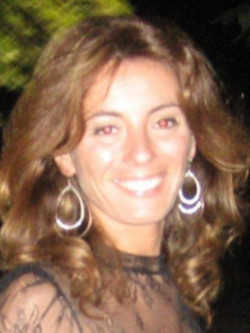
Abstract: In this talk, we will explore recent advancements in optimizing next-generation services over increasingly integrated computation-communication networks. We will describe the key characteristics of several classes of services, starting from communication, to content distribution - with a particular focus on the critical role of the wireless edge - to finally delve into real-time computation overviewing increasingly relevant resource-intensive and latency-sensitive services and applications. The objective is to provide valuable insights on future network design and end-to-end service optimization for real-time performance and enhanced customer experience.
Bio: Antonia M. Tulino (Fellow, IEEE) is a Full Professor at the Università degli Studi di Napoli Federico II. With over two decades of experience in the field, she has collaborated with Bell Laboratories, NJ, USA since 2000, and has held research positions at the Center for Wireless Communications in Oulu, Princeton University, and the Università degli Studi del Sannio, Italy.
Since 2019, she has been a Research Professor with the Department of Electrical and Computer Engineering at NYU Tandon School of Engineering, and Director of the 5G Academy, jointly organized by the Università degli Studi di Napoli Federico II and several leading companies in digital transformation. Her research interests lie in the area of communication networks, using signal processing, information theory, and random matrix theory. Her contributions to the field continue to have a lasting impact on communication networks and information theory.
In recognition of her contributions to the field, Antonia was a member of the Editorial Board of the IEEE Transactions on Information Theory from 2011 to 2013 and was elevated to IEEE Fellow in 2013. She has also received several paper awards, including the 2009 Stephen O. Rice Prize in the field of communications theory. In 2013, she was selected by the National Academy of Engineering for the Frontiers of Engineering Program, and from 2018 to 2019, she held the UC3M-Santander Chair of Excellence. From 2019 to 2021, Antonia served as Chair of the Information Theory Society Fellows Committee.
Gerhard Fettweis, Technical University Dresden
Talk title: Analog -> Digital -> Spiking?
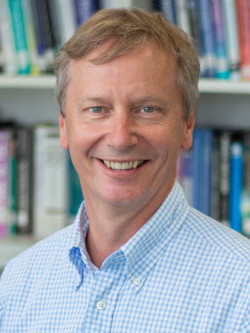
Abstract: As we moved from analog to digital communications we achieved many positive results, as e.g. robustness of communications, and possibly even energy efficiency when taking source coding into account and looking at the complete signal fidelity of transmission. But then we got lost on the digital train?
As we are approaching 6G, many researchers are driven by the idea of ever increasing the spectral efficiency of our systems. But is this the true optimization goal, in particular if we revisit our world of communications under energy challenges? Maybe the energy/bit is a much more important goal, but encompassing transmitter and receiver as a combined system? OFDM is clearly great, but is this really the way forward under energy efficiency goals? We recently suggested the gearbox-PHY as an approach to find energy-optimal ways of communications. But how do we design the gears?
2G cellular, even though it had constant amplitude modulation and extremely energy efficient from a power amplifier point of view, remained a challenge from a receiver point of view: the complexity of the Viterbi equalizer grows exponentially with the delay spread. Then in 3G we chose direct sequence spread spectrum. It requires a RAKE receiver – growing linearly with number of RAKE fingers which relate to the delay spread. Finally, in 4G and 5G we noticed that OFDM’s demodulation complexity grows only logarithmically with the delay spread – what an improvement! But that neglects the power amplifier requirements at the transmitter and the analog-digital conversion at the receiver, just to name 2 challenges. We recently proposed zero-crossing-modulation as a way out, nicely addressing the power amplifier challenge and the analog-digital converter challenge. It has its clear advantages, and this talk will address the beauty of this approach, but is this the ultimate?
Are we ready to learn from biology? Evolution has generated the most energy efficient way of neural communication – namely spiking. Are we ready for this step, or do we find enough reasons to be hesitant? This talk poses more questions than providing answers, but shall get us started to think.
Bio: Gerhard P. Fettweis (F’09) earned a Ph.D. under H. Meyr at RWTH Aachen in 1990. After a postdoc at IBM Research, San Jose, he joined TCSI, Berkeley, USA. Since 1994 he is Vodafone Chair Professor at TU Dresden, Germany. Since 2018 he is also founding director/CEO of the Barkhausen Institute. He researches wireless transmission and chip design, coordinates 5G++Lab Germany. His team spun-out 18 tech and 3 non-tech startups, and he initiated 4 platform companies. Gerhard is member of the German Academy of Sciences (Leopoldina), and German Academy of Engineering (acatech), and active in helping organize IEEE conferences.




